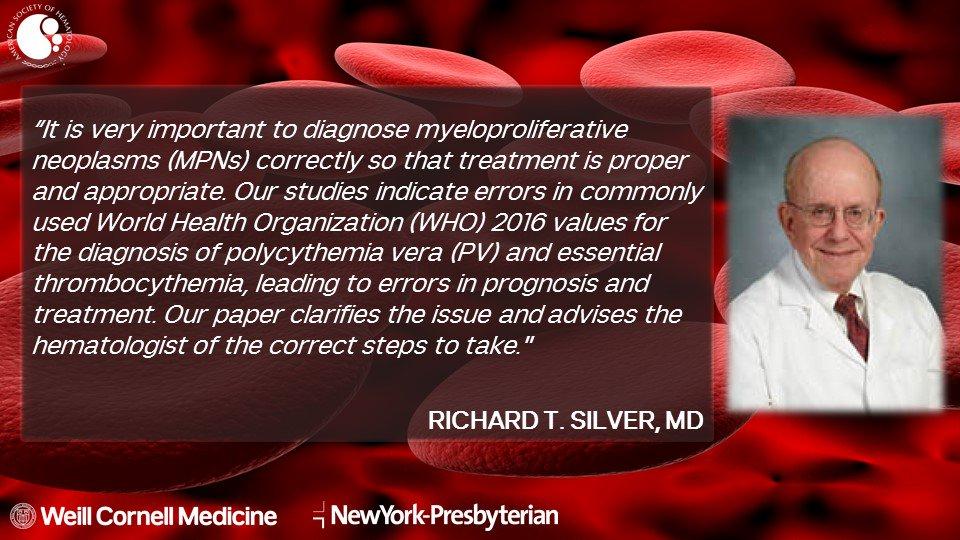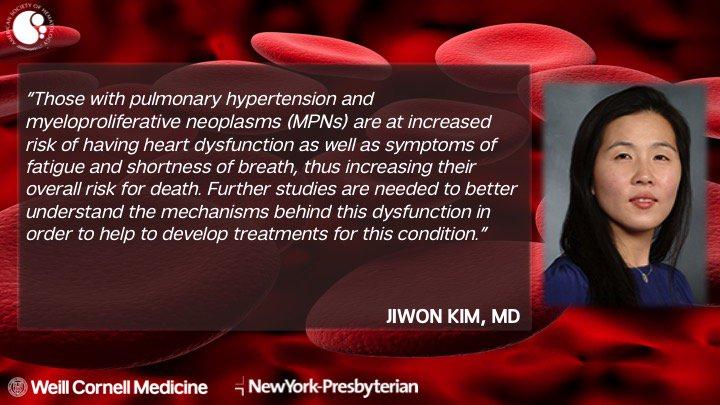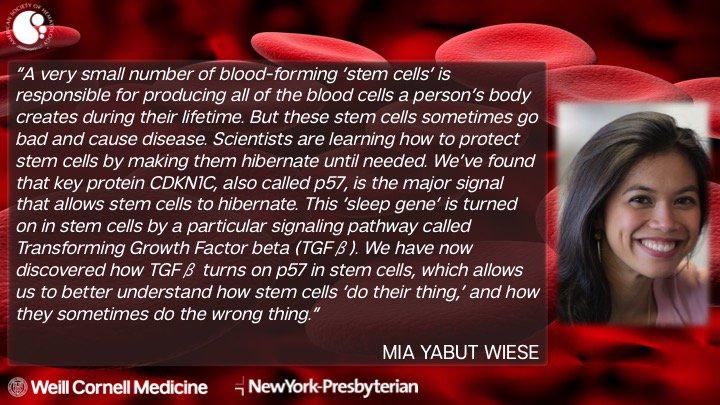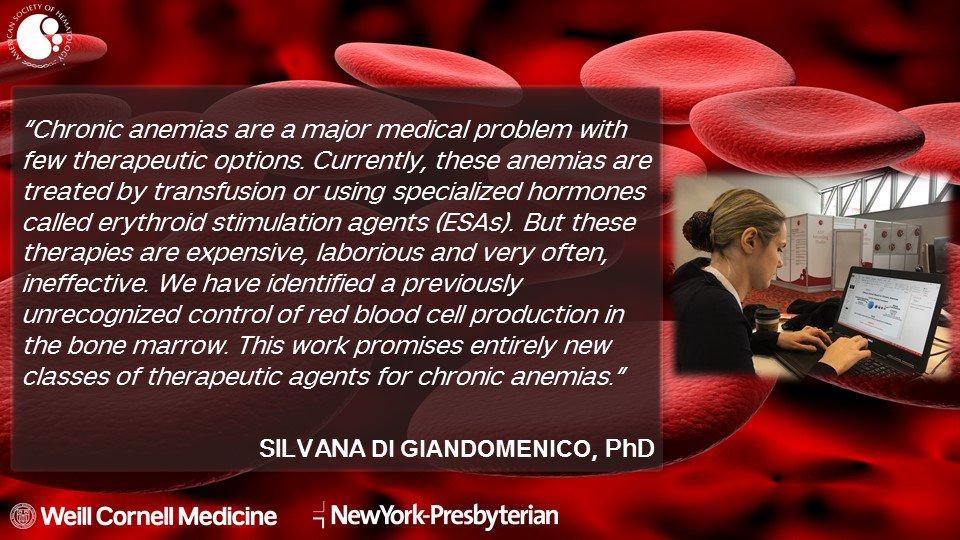Scientists and physicians from the Silver MPN Center made a splash at the 2017 American Society of Hematology (ASH) Annual Meeting and Exposition, an educational gathering of over 25,000 healthcare professionals from around the world who are working to conquer blood disease. Here are some research highlights from the meeting:
Dr. Richard Silver emphasized the vital importance of proper myeloproliferative neoplasm (MPN) diagnosis.

Dr. Jiwon Kim explained that more than half of patients with myeloproliferative neoplasms (MPNs) have pulmonary hypertension or elevated pressure in the lungs and right side of the heart, which adversely affects survival.
Pulmonary Hypertension Independently Shortens Survival of Patients with Myeloproliferative Neoplasms

Research technician Mia Yabut Wiese described the fascinating concept of stem cell "hibernation" and the insight it provides into malignant blood cell formation.

Post-doctoral associate Silvana Di Giandomenico, PhD, presented a newly-identified way to develop novel therapies for people with chronic anemia, a disease affecting over 3 million Americans per year.

The MPN Center’s own Drs. Joseph Scandura, Andrew Schafer and Richard Silver also took part in a Myeloproliferative Neoplasm Research Foundation (MPN-RF) kick-off meeting to discuss the MPN-RF Interferon (IFN) Initiative, a multi-center collaboration of internationally-recognized experts in MPNs and interferon signaling. The goal of this research is to understand how targeting the IFN pathway reduces the burden of mutated stem cells in MPN patients and why targeting this pathway is effective for some MPN patients but not for others.
Interferon is a type of cytokine, a class of small proteins used for intercellular communication during immune response, and is the most effective treatment of MPNs. Further study and understanding of interferons may lead to even more advanced treatment options for patients.
The meeting presented an opportunity for the investigators, including Dr. Scandura, to present and discuss their interferon-related research projects with the MPN-RF leadership and scientific advisory board, containing Dr. Silver and Dr. Schafer as scientific director.
We are so proud of our MPN Center's leadership at ASH and the MPN-RF Interferon Initiative, and of their relentless work to make life better for MPN patients and their families.

